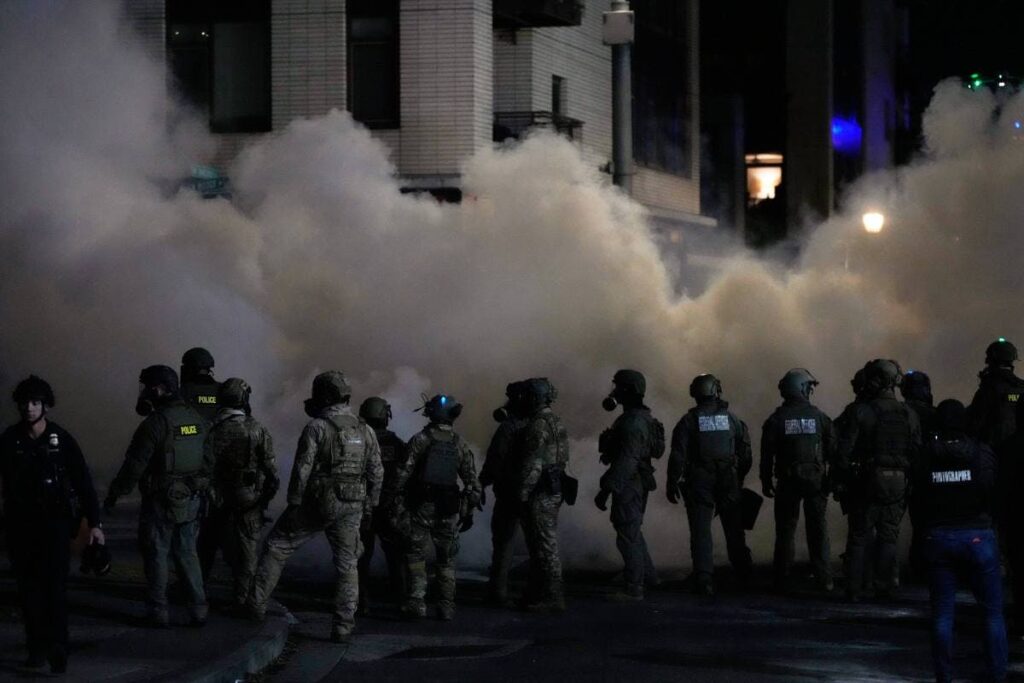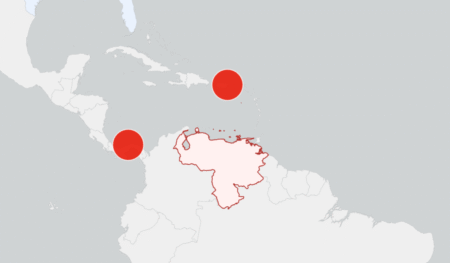A federal judge’s decision to block President Donald Trump’s plan to deploy the Oregon National Guard in Portland has set up a high-profile clash over executive power, federalism, and limits on the use of military force in domestic affairs.
The ruling from U.S. District Judge Karin Immergut, who was appointed by President Trump in 2019, weighed not only on the legality of sending federalized troops into a U.S. city amid protests, but also on the broader constitutional relationship between the White House, Congress, and the states.
Since the order, multiple MAGA members have come out against the decision, with White House Deputy Chief of Staff Stephen Miller calling the move a “legal insurrection” in a post on X.
“The President is the commander-in-chief of the Armed Forces, not an Oregon judge. Portland and Oregon law enforcement, at the direction of local leaders, have refused to aid ICE officers facing relentless terrorist assault and threats to life,” Miller continued in his post.
Immergut’s order followed a growing legal and political battle over Trump’s use of federal and military responses in Democratic-led cities, highlighting recurring tensions between local autonomy and assertions of presidential authority to restore what Trump described as “law and order.”
The Justice Department, representing the administration, appealed the ruling to the Ninth Circuit Court of Appeals late Saturday.
“President Trump exercised his lawful authority to protect federal assets and personnel in Portland following violent riots and attacks on law enforcement — we expect to be vindicated by a higher court,” White House spokeswoman Abigail Jackson said, according to Reuters.
Newsweek has reached out to the White House for further comment by email Sunday.
Why It Matters
Questions about the appropriate balance of civil and military power, as well as the president’s ability to override state officials, remain central as both sides head toward further legal proceedings.
The case follows recent court rulings restricting similar deployments to Los Angeles and Washington, D.C., raising the stakes for how future administrations may use federal force domestically.
State sovereignty, the rule of law, and concerns over escalation during protest periods remain at the center of public and legal debate.
What To Know
Judge Immergut issued a temporary restraining order Saturday, halting the Trump administration’s plan to deploy 200 Oregon National Guard troops to Portland. The state of Oregon and city of Portland had sued to prevent the move, arguing it violated both federal law and the Constitution by using military force where no significant threat or insurrection was present. The court ruling remains effective at least through October 18, pending further argument.
The deployment followed weeks of relatively small and peaceful protests centered around Portland’s U.S. Immigration and Customs Enforcement (ICE) building. Demonstrations typically involved a few dozen people and rarely resulted in arrests. State lawyers cited downward crime trends and limited unrest to argue against the necessity of military intervention, emphasizing that local law enforcement had maintained control, Reuters reported.
President Trump has described Portland as “war-ravaged” and instructed the Defense Department to federalize the Guard to protect federal assets—a justification Judge Immergut ruled was “untethered to the facts.” In her order, Immergut said that the facts did not support a finding of insurrection or large-scale disorder that would justify such a deployment. “This is a nation of Constitutional law, not martial law,” she wrote in her decision.
Oregon’s lawsuit also alleged President Trump used exaggerated social media depictions and previous protest footage from 2020 to justify the military action.
The state and city argued the effect would be to “normalize military presence in U.S. cities.” The mayor and police officials asserted that nonviolent activity in the city posed no danger requiring military force, and that the threat was politicized by the White House. Portland Mayor Keith Wilson said the narrative of unrest was “manufactured,” NBC News reported.
The decision sparked backlash on social media from many MAGA members, including White House Press Secretary Karoline Leavitt who said, “President Trump will end the radical left reign of terror in Portland once and for all.”
What People Are Saying
Judge Karin Immergut, U.S. District Court: “This country has a longstanding and foundational tradition of resistance to government overreach, especially in the form of military intrusion into civil affairs. This is a nation of Constitutional law, not martial law.”
White House Press Secretary Karoline Leavitt: “President Trump will end the radical left reign of terror in Portland once and for all.”
Oregon Democrat Governor Tina Kotek said in a statement, reported by NBC News: “Justice has been served, and the truth has prevailed. There is no insurrection or threat to national security in Portland—only a threat to democracy led by President Trump.”
Oregon Attorney General Dan Rayfield: “Sending in 200 National Guard troops to guard a single building is not normal. What we’re seeing is not about public safety, it’s about the President flexing political muscle under the guise of law and order.”
Portland Mayor Keith Wilson said, according to an NBC News report: “Portland is a peaceful city and this narrative of unrest was manufactured.”
What Happens Next
The temporary restraining order will remain in effect at least until October 18, when further court proceedings are scheduled.
The Trump administration has appealed the decision, and both federal and Oregon officials are preparing additional legal arguments concerning the constitutionality of the deployment.
Meanwhile, no National Guard troops will be deployed to Portland pending further rulings.
Read the full article here














